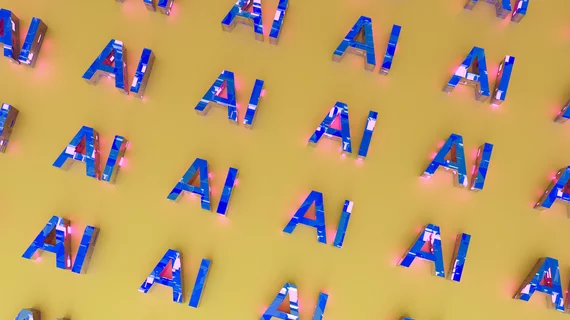FDA highlights radiology's continued dominance in AI-enabled device submissions
Radiology has experienced the steadiest increase of artificial intelligence/machine learning-enabled device submissions of any specialty, the U.S. Food and Drug Administration reported Thursday.
Through the end of July, 79% of all AI products authorized by the agency in 2023 are in radiology (85 products), followed by 9% in cardiovascular care (10), 5% in neurology (5), 4% in gastroenterology/urology (4) and 2% in anesthesiology (2).
“Interest in medical devices incorporating AI/ML functionality has increased in recent years and even more so in recent months due to the development of large language models,” the agency said Oct. 19, pointing to products such as ChatGPT, Llama, Claude and PaLM.
Based on projected volume in 2023, the increase of AI-powered devices is expected to reach more than 30% (vs. 2022 levels). That’s compared to a 39% in 2020 (over 2019), which dipped to 15% in 2021 and 14% in 2022.
Last year, 87% of all cleared AI devices were in radiology (122 total), versus 7% in cardiology (10), and 1% in neurology (2).
The FDA compiled the list from public-facing summaries of AI/ML-specific product codes and other materials published by manufacturers.
“This list is not meant to be an exhaustive or comprehensive resource of medical devices that incorporate AI/ML,” the agency said in its update. “Rather, it is a list of medical devices that incorporate AI/ML across medical disciplines, primarily based on information provided in the summary descriptions of their marketing authorization document.”
Cleared machine learning models have ranged in complexity from shallow, with less than two hidden layers, to more multifaceted, deep learning-based products. And they’ve generally trended toward using hybrid approaches that combine different algorithms to achieve their results, the FDA noted. As of Oct. 19, the FDA has not authorized a device that uses generative AI, artificial general intelligence or is powered by large language models.
The update also offers a list of all radiology-related products that have received 510(k) clearance in 2023.

